50th Anniversary Speakers
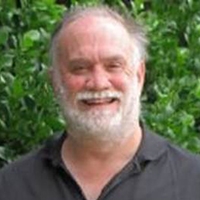
David Schimel is a Research Scientist at NASA’s Jet Propulsion Laboratory. He is a biogeochemist interested in the global carbon cycle. He was formerly Chief Science Officer, Principal Investigator, and CEO for the National Ecological Observatory Network (NEON). Schimel was the convening lead author of the Intergovernmental Panel on Climate Change (IPCC) report, which led to the IPCC receiving the Nobel Peace Prize in 2007 alongside Al Gore. He has authored numerous papers on biogeochemistry and the global carbon cycle.
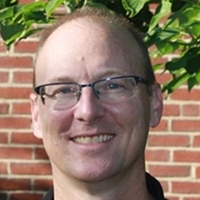
Wil Wollheim is a Professor at the University of New Hampshire and the Co-director, Water Systems Analysis Group in the school of the Natural Resources and the Environment. In his work he explores the physical, chemical and biological processes that shape hydrological systems, with emphasis on the unique role of humans as agents of change. He employes field monitoring, whole ecosystem experiments, novel in situ sensor deployments, and dynamic hydrological and ecosystem modeling, to better understand hydrological and biogeochemical dynamics at scales ranging from individual ecosystems, to the global systems of inland waters.

Gillian Galford is a Research Associate Professor at the University of Vermont. As an ecosystems ecologist and earth system scientist, Gillian studies land-cover and land-use change in the tropics and its impacts, particularly on greenhouse gas emissions and the water cycle. Gillian works across scales, from plot level studies on farms to regional analyses through remote sensing and ecosystems modeling. She has worked on carbon and nitrogen dynamics in settings from the large-scale soybean farms of Mato Grosso, Brazil to small-holder agriculture systems in Malawi and East Africa.
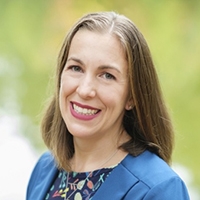
Caitlin Hicks Pries is an Associate Professor in Biological Sciences at Dartmouth College. She is broadly interested in the terrestrial carbon cycle and how the carbon balance of ecosystems is determined by the interplay of soil and plant processes with climate. Her research spans ecosystems from temperate forests to tundra and from preserves to managed forests to pastures. Currently, her research focuses on the controls of soil carbon and nutrient cycling including the susceptibility of soil organic matter to climate change and how plant communities and their associated microbes affect soil organic matter storage.
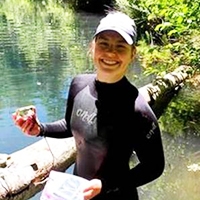
Jessie Moravek is a postdoc at the University of Minnesota. Her research combines freshwater ecology, conservation policy, and river restoration strategies to support freshwater ecosystems and the people that depend on them. She has worked in rivers around the world, and she prioritizes collaborating with local communities to develop research questions and target specific restoration problems. Currently she is examining how beaver restoration in stream systems across North America can help us adapt to global climate change.
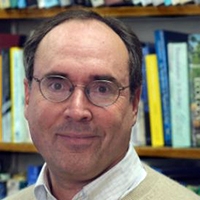
George Kling is a Professor of Ecology and Evolutionary Biology at the University of Michigan. He primarily studies aquatic ecology and biogeochemistry, and his research has focused on carbon and nutrient cycling, on using stable isotopes to understand food-web interactions, on the integration of lakes and streams in a landscape context, and on the role of microbial diversity in ecosystem function. He has worked internationally on arctic lakes and streams and on tropical lakes in Africa.
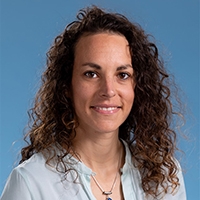
Rut Pedrosa Pamies is an Assistant Research Investigator at the Ecosystems Center at The Marine Biological Laboratory. She is an oceanographer and biogeochemist. Her major research interest is the cycling of elements in the environment, especially the biogeochemistry of carbon. A major focus of her research is on the factors that regulate the downward flux of material from the surface of the ocean into the interior and from there to the seafloor. She leads the Ocean Flux Program (OFP) scientific team, a deep ocean particle flux time-series offshore Bermuda, the longest running time-series of its kind.
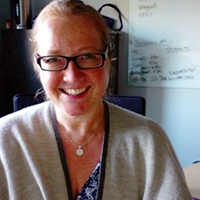
Jennifer Bowen is a Professor in the Marine Sciences Center at Northeastern University. Her work runs the gamut from understanding how human derived nutrients are altering the structure and function of salt marshes to examining whether oyster aquaculture increases the prevalence of both beneficial and harmful microorganisms in the environment. At the broadest levels, she is interested in how human activities are altering the structure and function of microbial communities and in turn how microbial communities can help ameliorate pollution from human sources.
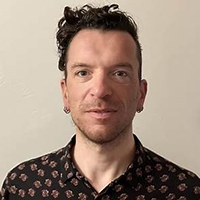
Emil Ruff is an Associate Scientist at The Ecosystems Center and Bay Paul Centers at the Marine Biological Laboratory. His research focuses on microbial interactions and population dynamics as drivers of community function. To disentangle microbial food webs, Emil mainly studies ecosystems with reduced complexity, such as natural or laboratory enrichment cultures, microbial blooms or extreme habitats. His work has improved the understanding of the sources and sinks of the greenhouse gas methane in seafloor ecosystems and groundwater aquifers.
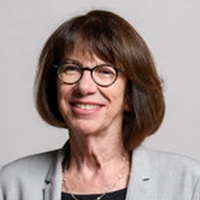
Colleen Cavanaugh is the Edward C. Jeffrey Professor of Biology in the Department of Organismic and Evolutionary Biology and co-founder of the Microbial Sciences Initiative at Harvard University. Her research interests focus on microbial symbiosis and evolution with emphasis on bacteria-animal associations including diversity, transmission strategies, and coevolution. With expertise in the study of uncultured bacteria, her research has expanded from marine symbioses to the characterization of the microbiomes of human and wild animals and their role in health and disease.
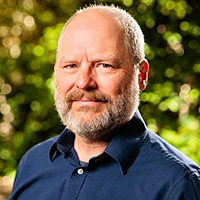
Byron Crump is a Professor and Program Head of Oceanography at Oregon State University. He studies aquatic microbial ecology in marine, estuarine and freshwater ecosystems. His interests include bacterial and archaeal biogeography, organic matter and nutrient cycling, microbial food web structure, and the composition and development of microbial communities. Much of his research is in Alaska where he works both in freshwater and marine systems.
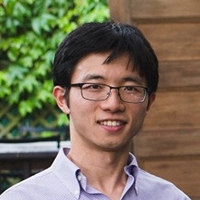
Xuefeng (Nick) Peng is an assistant professor in the School of Earth Ocean and the Environment at the University of South Carolina. His research focuses on nitrogen and carbon cycling in marine environments driven by microorganisms. He is interested in microbial interactions and the interplay between biotic and abiotic factors that shape microbial communities. Recently his work has centered on marine fungi, which have not been well studied. He develops, applies, and integrates novel methods in microbial ecology and geochemistry to study the intricate relationships found in marine environments.
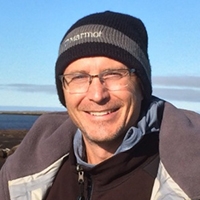
James McClelland is a senior scientist in The Ecosystems Center at the Marine Biological Laboratory. His research interests include 1) effects of human activity on water, carbon, and nutrient fluxes from land to sea, and 2) responses of coastal ecosystems to changes in land-derived inputs. To identify and explore changes in land-sea coupling he uses a wide variety of approaches including analysis of historic data sets, field studies of biogeochemical cycling and constituent transport, and modeling.
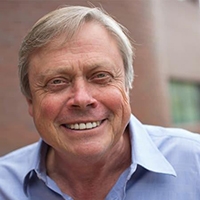
Robert Howarth is the Atkinson Professor of Ecology & Environmental Biology at Cornell University and Co-Editor in Chief of the journal Ocean-Land-Atmosphere Research. His research includes climate effects on nutrient loads to aquatic ecosystems, consequences of nitrogen in coastal marine ecosystems, atmospheric ammonia pollution, methane emissions from fossil fuels, alternative energy policies, and lifecycle assessments for hydrogen and liquefied natural gas. His work has been cited more than 90,000 times in other peer-reviewed literature, making him one of the most cited environmental scientists in the world.
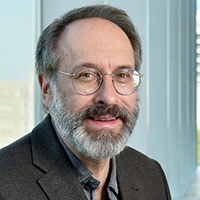
Charles J. Vörösmarty, is the Founding Director of the Environmental Sciences Initiative at the City University of NY Advanced Science Research Center. His research focuses on the development of computer models and geospatial data sets used in synthesis studies of interactions linking the water cycle, climate, biogeochemistry and anthropogenic activities. He has modeled local, regional, and continental to global-scale dynamics of water balance, discharge, and constituent fluxes in river systems, including assessments of the impact of large scale water engineering on the terrestrial water cycle.